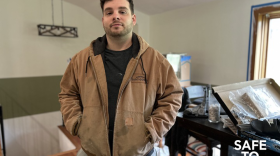A new report identifies 2,500 new industrial sites that may be discharging toxic PFAS chemicals, including a handful of factories in New Hampshire.
Some kinds of PFAS have been phased out of American manufacturing - but other, similar chemicals have taken their place.
The substances are largely unregulated, don’t break down in the environment, and have been linked to health problems at low levels.
For the new analysis, the watchdog Environmental Working Group used government data to find facilities that likely use PFAS and already report other toxic discharges.
Companies will have to start reporting their PFAS discharges to the EPA next year, though there are no binding federal limits on the chemicals.
The EWG report names several factories in New Hampshire's southern tier as “suspected” emitters of PFAS. State data shows these sites are not adjacent to any elevated PFAS levels.
Still, on a call Thursday with reporters, U.S. Rep. Chris Pappas says the state should confirm this with more testing.
“But beyond that, we really, as a nation, can’t fully protect public health if we’re just doing this community by community, state by state,” Pappas says.
Some of New Hampshire's strictest PFAS limits are tied up in court and in the stalled legislative session. Others, including a groundwater cleanup standard, are still in place.
Meanwhile, federal PFAS limits – which Pappas and the rest of New Hampshire’s Congressional delegation support – are progressing slowly in Congress and at the EPA.
Pappas and the delegation also want more federal money to pay for state testing efforts.








